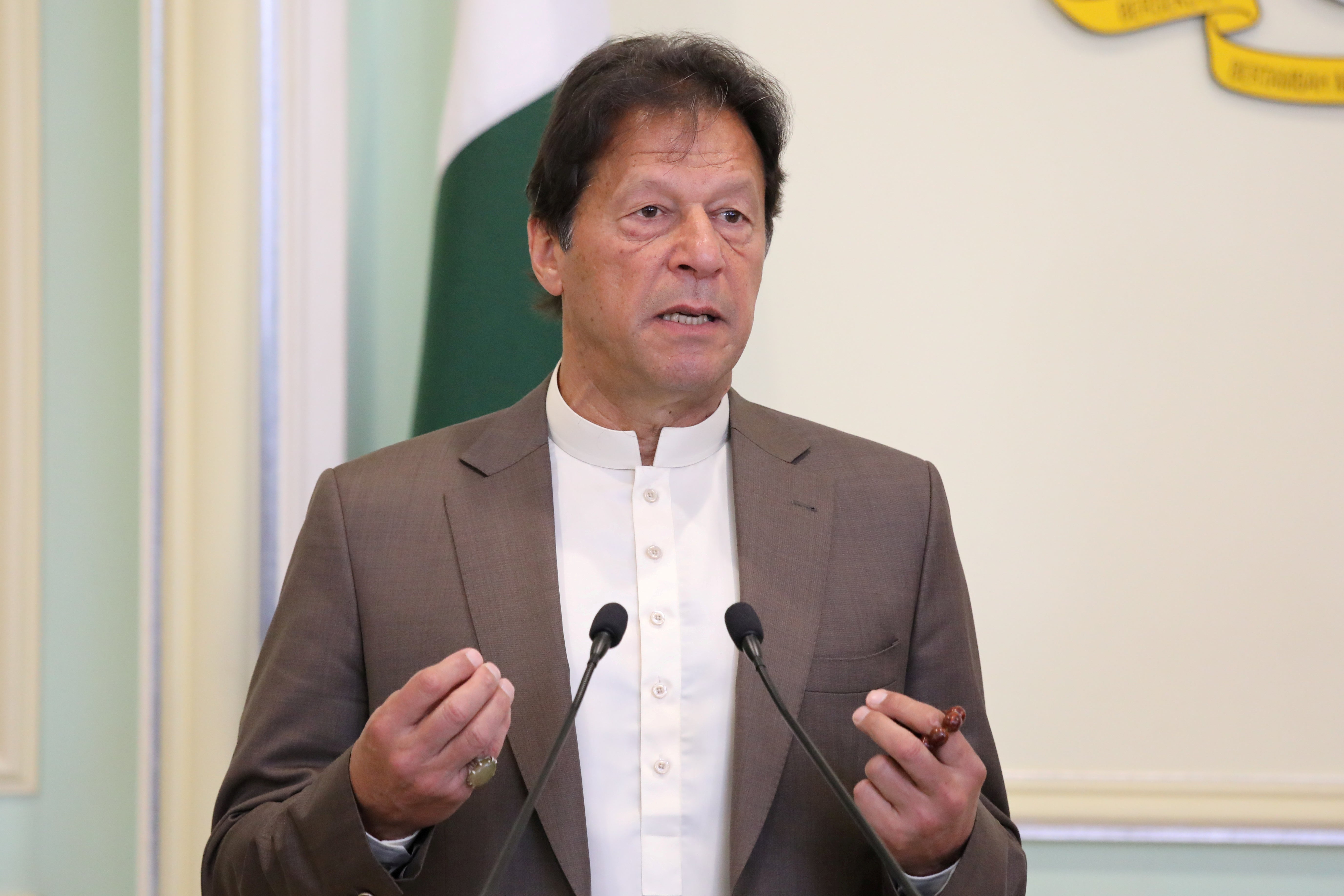Pakistan’s Imran Khan backs law to chemically castrate convicted rapists
Proposed ordinances also prohibit the invasive ‘two-finger test’ for sexual assault victims

Pakistan’s Prime Minister Imran Khan has approved a law that stipulates chemical castration among harsh punishments for rape offenders, in what his office called an effort to control the growing incidents of sexual violence against women and children in the country.
Mr Khan has approved in principle two “critical ordinances” to deal “holistically with the crime of rape and child abuse and to make the necessary amendments" in the Pakistan Penal Code. The drafts of the ordinances were presented by the law ministry on Tuesday.
Local media reports said that Mr Khan has stressed that the new legislation will be clear and transparent with strict enforcement as they want to “ensure a safe environment” for the citizens.
The Pakistani prime minister said once the laws are in force, rape survivors will be able to register complaints without fear and authorities will protect their identity.
Pakistan’s human rights minister Shireen Mazari said that the ordinances include an “expansive definition of rape”, the establishment of special courts, “anti-rape crisis cells" and “prohibition of the two-finger test”. The test is a largely discredited yet still widely used invasive check on sexual assault victims’ genitalia.
“These ordinances were badly needed,” Ms Mazari tweeted.
The reports suggested that some ministers were also in favour of public hanging for the rape convicts. The full details of the new ordinances were expected to be presented before parliament soon.
Violent crimes against women have increasingly become the subject of debate in Pakistani society, particularly after a recent high-profile gang-rape case in Lahore.
Syed Ali Zafar of Pakistan’s ruling party, Tehreek-e-Insaf, said the “commitment to bring justice to victims of rape and harassment will provide women holistic legal cover and protection.”
“However, it is just the beginning. We have to work even harder to change [the] mindset that makes happen such gory acts,” said Mr Zafar.
In December 2019, a global Gender Gap Index Report by the World Economic Forum (WEF) had ranked Pakistan at 151 out of 153 countries, only ahead of Iraq and Yemen.
Join our commenting forum
Join thought-provoking conversations, follow other Independent readers and see their replies
Comments


Bookmark popover
Removed from bookmarks